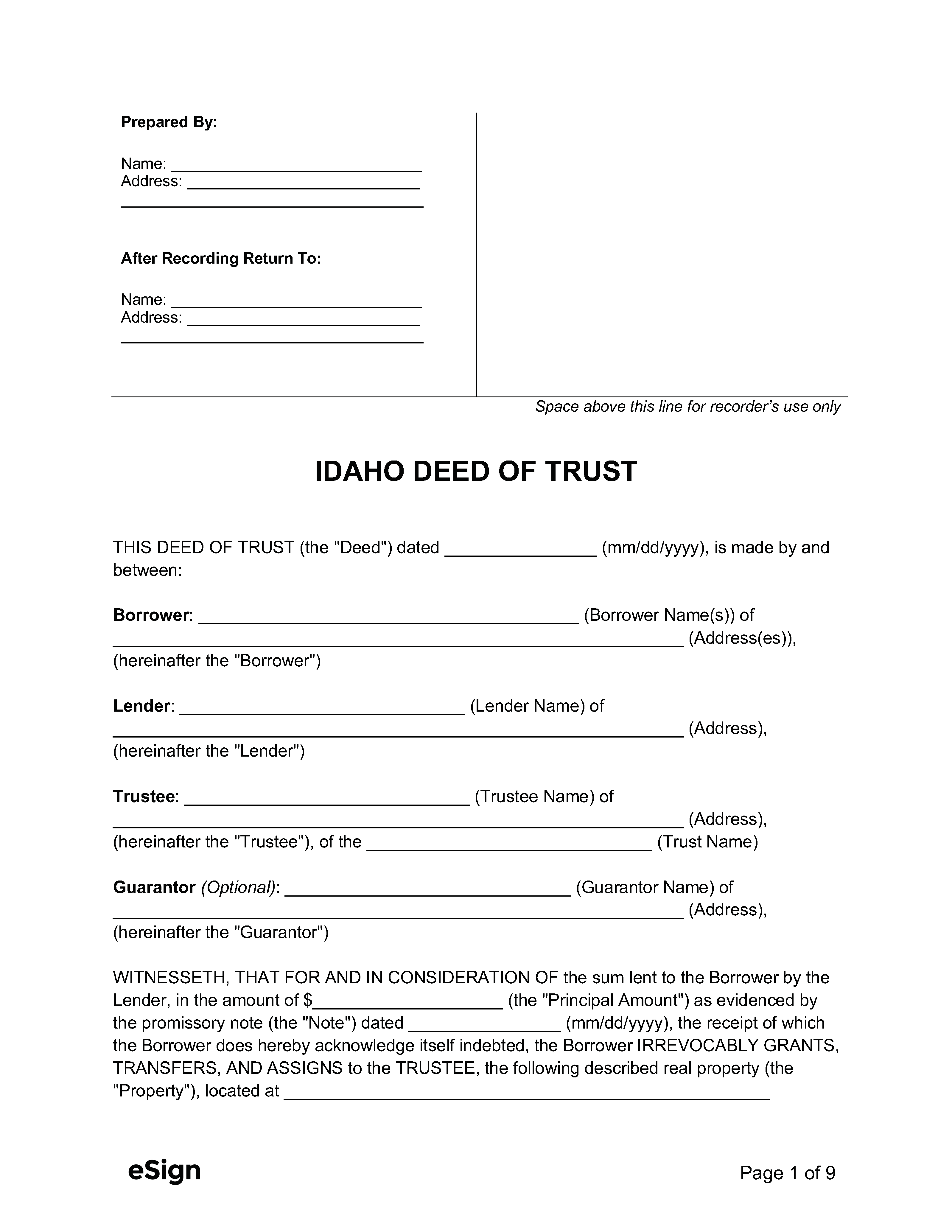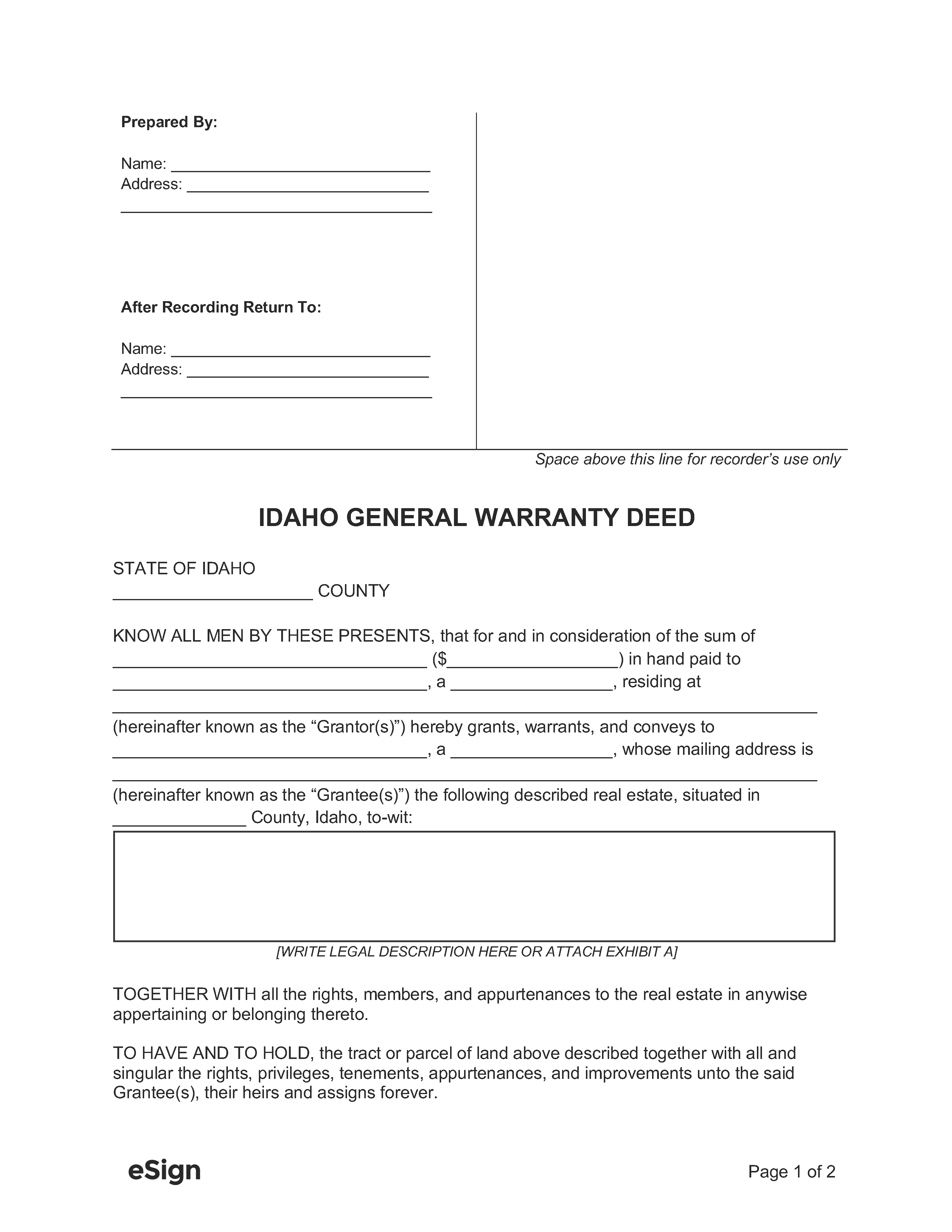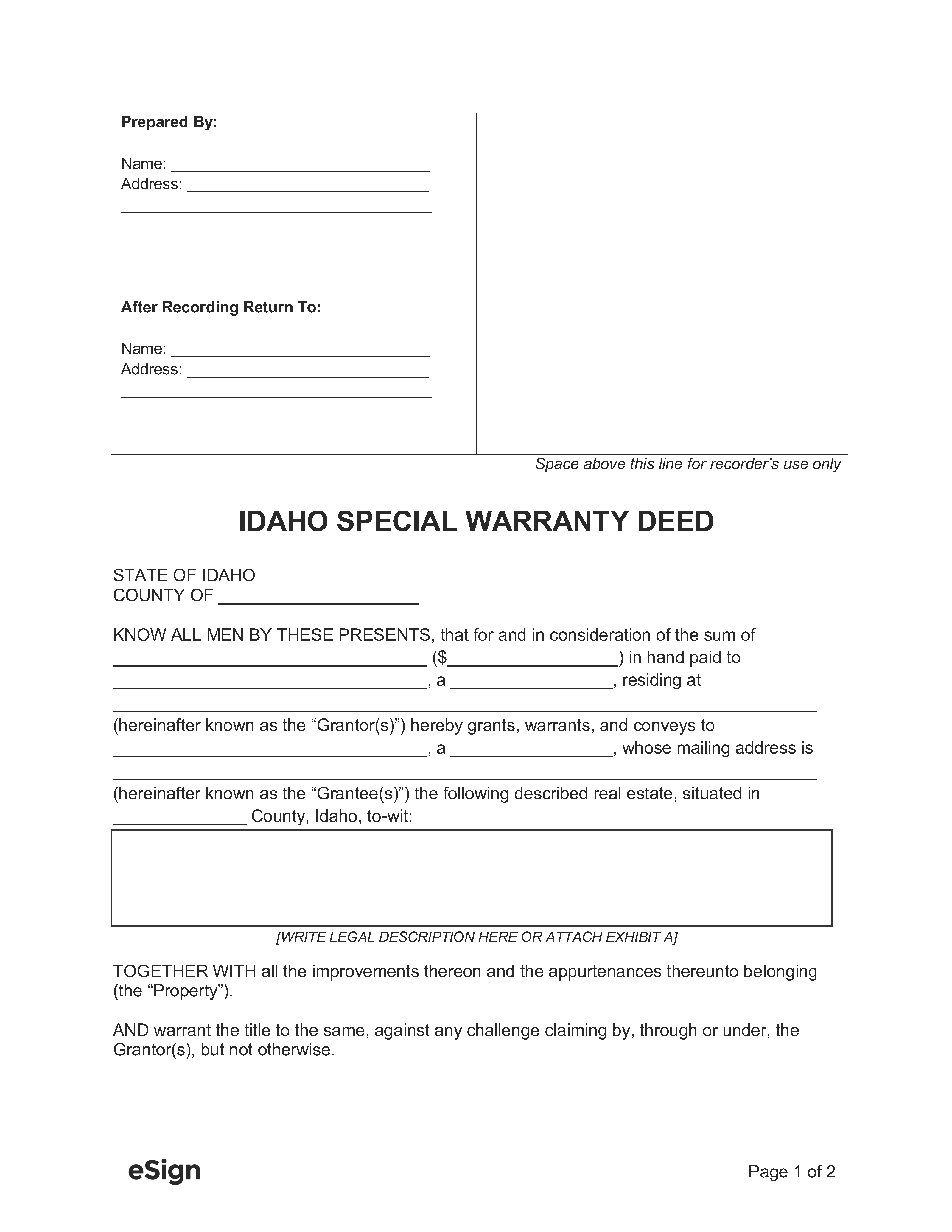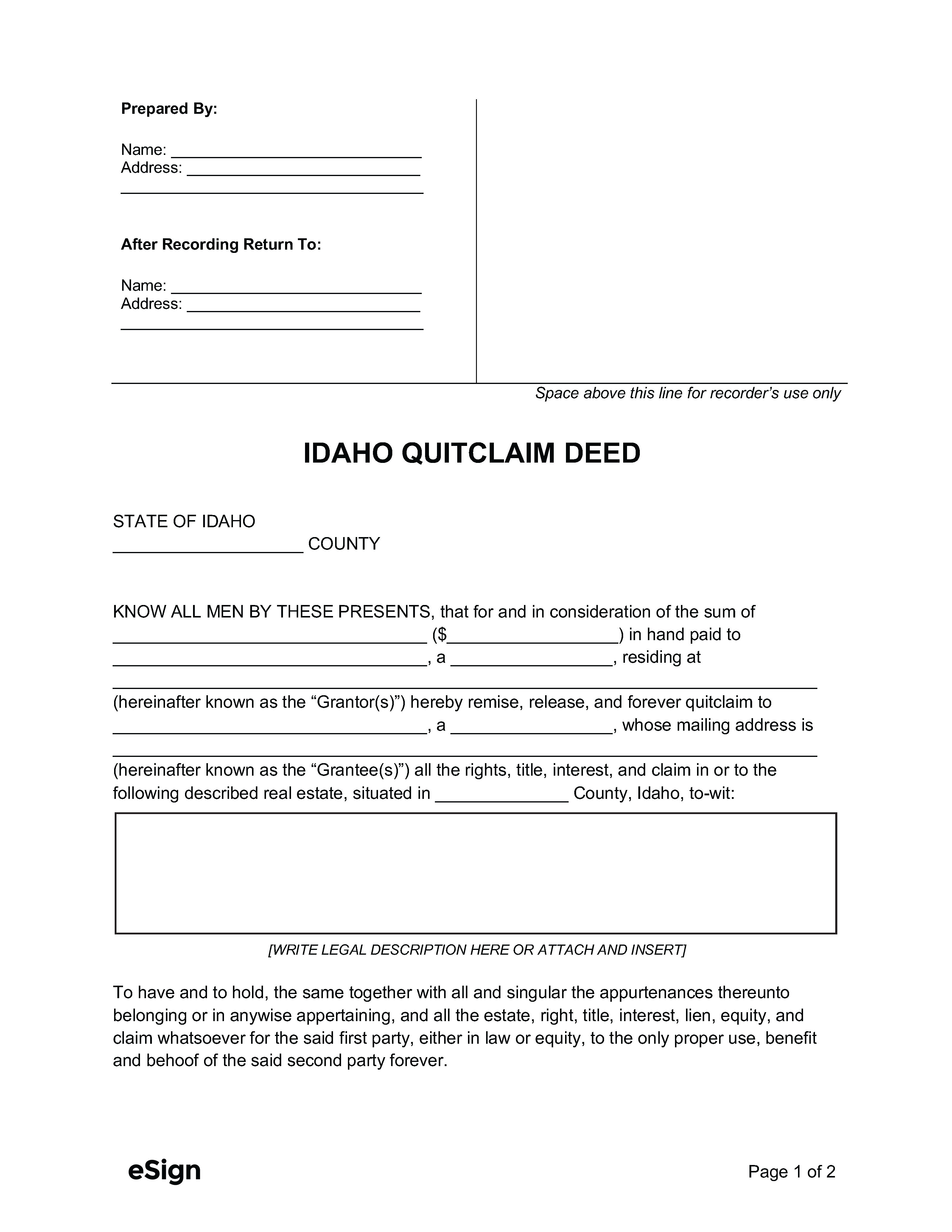By Type (4)
 Deed of Trust – Transfers property interest to a third-party trustee as security for a loan. Deed of Trust – Transfers property interest to a third-party trustee as security for a loan.
|
 General Warranty Deed – Gives the grantee warranties that the property title has no encumbrances or liens. General Warranty Deed – Gives the grantee warranties that the property title has no encumbrances or liens.
|
|
|
 Special Warranty Deed – Only guarantees that the deed has no encumbrances from the grantor’s ownership. Special Warranty Deed – Only guarantees that the deed has no encumbrances from the grantor’s ownership.
|
Recording
Signing Requirements – The grantor’s signature must be notarized.[3]
Where to Record – Deeds must be recorded by the County Recorder.[4]
Cost – Recording fees are as follows (as of this writing)[5]:
- Deeds – $15 for the first 30 pages, $3 per additional page
- Trust Deeds – $45 for the first 30 pages, $3 per additional page

